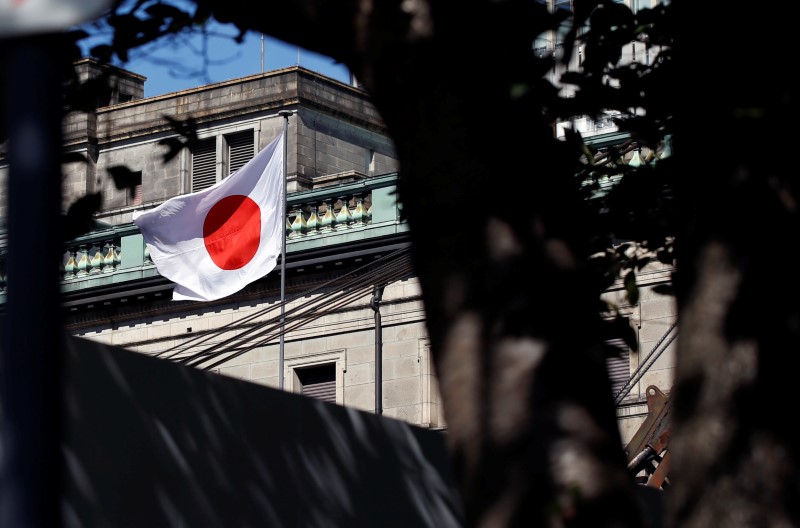By Leika Kihara
TOKYO (Reuters) - The Bank of Japan is expected to maintain its massive stimulus program at a monetary meeting ending on Thursday despite growing signs of improvement in the economy, keeping its money tap wide open to ensure that recovery translates into higher inflation.
BOJ Governor Haruhiko Kuroda may signal at his post-meeting news conference that the central bank could raise its yield targets or slow down asset purchases - but only when inflation expectations heighten or the cost of stimulus outweighs the benefits.
With inflation still distant from its 2 percent target and the selection of Kuroda's successor looming, the BOJ is in no rush to remove monetary support from an economy only just emerging from two decades of deflation.
"Economic and price conditions haven't changed much in the past few months, so the BOJ probably sees no need to change policy now," said a source familiar with the bank's thinking, a view shared by two other sources.
At a two-day meeting ending on Thursday, the BOJ is widely expected to keep its short-term interest rate target at minus 0.1 percent and a pledge to guide 10-year bond yields around zero percent.
But the board may discuss whether the BOJ should consider raising its yield targets or slow purchases of exchange-traded funds (ETF) next year, analysts say, as some members had recently voiced concern over the demerits of prolonged easing.
Calls from newcomer Goushi Kataoka to increase stimulus to speed up meeting the BOJ's 2 percent inflation target has not gained support of other board members who are wary of the rising costs of easy policy.
Another newcomer, former banker Hitoshi Suzuki, has recently said the BOJ may need to raise its yield targets or slow ETF buying in the future.
"There's a good chance the BOJ will fine-tune its framework next year," said Izuru Kato, chief economist at Totan Research.
"It can justify the move as helping regional banks continue lending and mitigating the cost of monetary easing."
With near-zero interest rates and a lack of demand for funds pushing more regional banks into the red, the BOJ's stimulus has been under criticism for possibly destabilizing the banking system.
Japan's massive government pension fund has decided to shoulder the fees charged on its deposits under the BOJ's negative rate policy to ease the strain on financial institutions, the Nikkei reported.
BOJ officials have said they do not necessarily need to wait until inflation hits 2 percent to raise the bond yield targets.
Still, many central bank policymakers prefer to stand pat until inflation accelerates and convinces the public that prices will continue to rise ahead, the sources say.
Kuroda's term ends in April, discouraging the BOJ from acting because candidates for the job include premier Shinzo Abe's former aide Etsuro Honda - a vocal advocate of aggressive easing.
Japan's economy grew an annualized 2.5 percent in the July-September period to mark a seventh straight quarter of expansion, supporting the BOJ's recent signaling that it could edge away from crisis-mode policy earlier than expected.
But core consumer inflation remains stuck at 0.8 percent and firms polled by the BOJ expect no major pick-up in price growth in coming years.
Most economists polled by Reuters expect the BOJ's next move to be a withdrawal of stimulus, though they do not expect such step to be taken until late 2018 or beyond.
